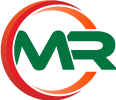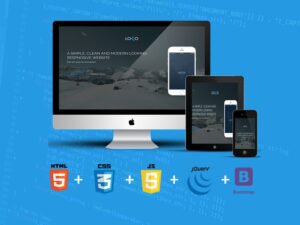Google SEO MasterClass for Beginners
- Description
- Curriculum
- FAQ
- Reviews

This course is basically for anyone who wants to master SEO tricks and tips. In this course, we have consolidated various methods & tricks through which we can rank a website on the top of Google Search Engine. These methods are tried and tested and we are glad to share the tricks that have worked for us with all our students.
What is SEO?
SEO is a process of making changes to your website and conducting activities outside of it, in a manner so as to gain more visibility in the eye of Search Engines; for a single or set of keywords. In short, it is a process of optimizing the website, to be visible on the top of Search Engines for a select set of keywords.
SEO includes the following processes:
-
Keyword Strategy
-
On-Page SEO
-
Off-Page SEO (Link Building Activities)
-
SEO Tools
1) Keyword Strategy
Keywords are the base for any SEO project, approach any SEO agency and their first question will be about “What are you keywords? or what keywords do you want your website to rank for?”. So what is so much that you have to learn in this section.
Some important concepts to learn when it comes Keyword Planning/ Strategy are:
-
What keywords should you targets?
-
How many people will or are looking for this keyword?
-
What is the intension of the user when he is searching a specific keyword & what action is the user likely to take?
-
What are long-tail & short-tail keywords?
-
What are business & traffic keywords?
-
What Tools should you use for Keyword Planning?
Once you learn the above concepts you can move to the next section i.e. On-Page SEO.
2) On-Page SEO
Once you know how to find the best keywords for your SEO Project, the next step is to integrate those with the website & that is called On-Page SEO also known as On Page Optimization (On as in On The Website).
Some important concepts to learn when it comes to On-Page Optimization
-
What are meta tags (meta title, description, canonical etc.)?
-
What are heading tags & why are they important?
-
What is image optimization?
-
What is schema markup?
-
What is sitemaps?
-
What is website load-time?
-
What is keyword optimized content?
-
Is your website Responsive?
-
Do you have outbound links on your website?
-
Are your website internal links in place?
& many more.
Now if your website is a CMS system (a website with admin where you can make all the changes) something like WordPress than you will need a WordPress Tutorial to make the On-Page SEO changes, otherwise you will need help from your developer to make the changes to the website.
3) Off-Page SEO
Off-Page Optimization means or includes activities which will increase the reputation of your website on the internet and in the eye of Google. It includes building backlinks (incoming links from other websites) from websites which have a good reputation.
Some important concepts to learn when it comes to Off-Page Optimization
-
How to get quality backlinks?
-
What is link juice?
-
What are no-follow and do-follow links?
-
What is linking root domains?
-
What are low quality backlinks?
-
What is an anchor text?
-
How to do Article Submission
-
How to do social bookmarking?
-
What is local citation and how to do it?
-
What is social profile creation?
-
What is classified posting?
-
What is Syndication Submission?
& many more.
If you have never heard of any of those terms than, all the above may sound complex but eventually once you get well versed with these terms you will not have a tough time understanding & relating to those.
4) SEO Tools
Now, that you are aware about Keyword Planning, On-Page SEO & Off-Page SEO the next step will be the level up your game and move to the SEO Tools. There are many tools out there and getting a hang of the ones that suit you will be a challenge. There are many factors in choosing the tool such as cost, complexity, benefits that provide.
Free vs Paid tools, if you are a start-up and do not have a great budget it is always recommended to start with the free SEO tools.
-
Keyword Research Tools
-
Website Audit Tools
-
Analytics Tools
-
Competitor Analysis Tools
-
Backlink Checker Tools
-
Plagiarism Tools
-
Website Speed Test Tools
& many more
Now that we know the things that we need to know in SEO, let’s look at the factors that will influence the time you will take the learn SEO.
Hope this helps. All the best!
-
12Introduction
-
13SEO Friendly URLs
-
14Redirects in SEO
-
15Keyword Optimized in Title & Description Tag
-
16Add Modifier to your Title Tags
-
17Use Heading (h1, h2 & h3)
-
18Keywords in first 100 words
-
19Internal Linking
-
20Outbound Links
-
21Use Synonyms and LSI Keywords
-
22Image Optimization (Alt & Title Tags)
-
23A perfect Content Guide for your Website
-
45Article Submissions
-
46Social Bookmarking
-
47Local Citation
-
48Social Profile Creation
-
49Classified Posting
-
50Document Sharing
-
51Web 2.0 Submissions
-
52Syndication Submission
-
53Infograpic Submission
-
54Resouces for Infographic Submission
-
55Pinterest Submissions
-
56Things that you should avoid while doing SEO





